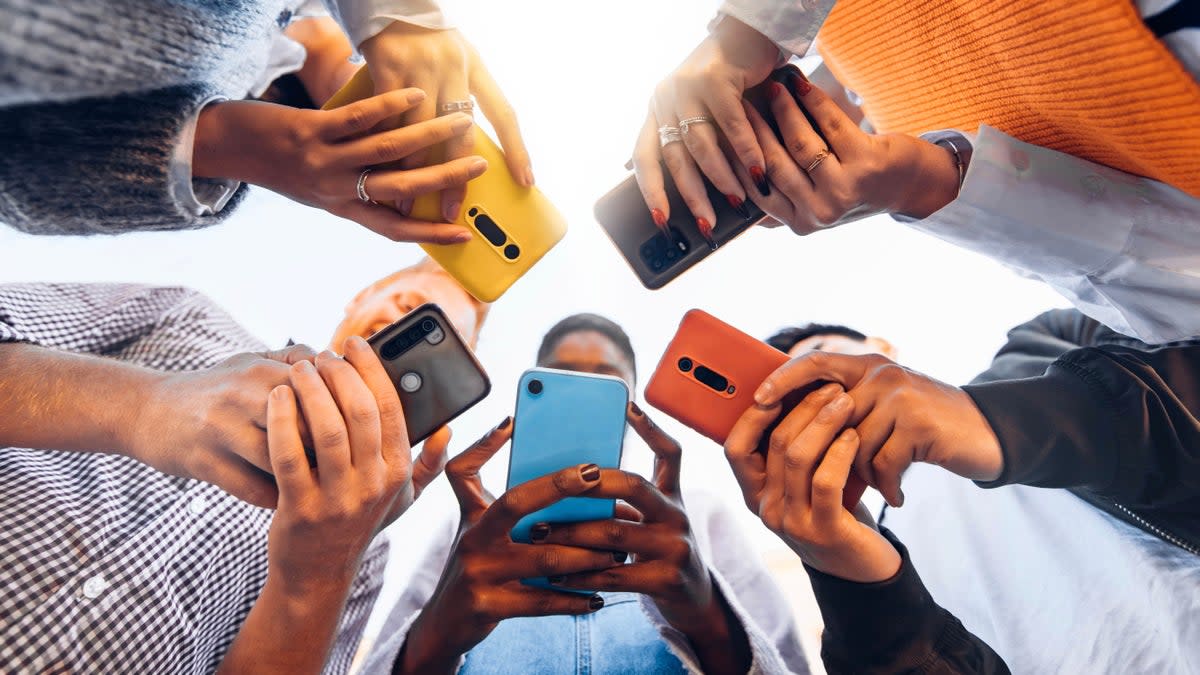Voices: The internet is ruining your life – and I can prove it

When I was a teenager, my mum used to worry that I was addicted to the internet. Bear in mind this was the mid-2000s, back when the internet was usually confined to one particular room of the house – if you wanted to waste your evening on MSN messenger or the Dragon Ball Z wiki, you had to sit in front of a stationary monitor and do all your shameful business there.
Flash forward to now and, thanks to smartphones, I can look at the Dragon Ball Z wiki whenever I want. In fact, if I had to guess, I’ll probably check my phone between five and 10 times before I’ve finished writing this article. If I was addicted to the internet in 2005, I don’t know what you’d call my behaviour now. Super addiction? Obsession?
I suppose at this point you’d just call it “living in the world in the 21st century”, because my compulsive need to be always-online is one that’s shared by just about every person on the planet – including, ironically enough, my mum (that’s right guys, we got her). The real question then, is how much harm our collective addiction to the web is causing? Well, thanks to Elon Musk, we might have an answer.
The esteemed Tesla CEO and Twitter-ruiner has helped connect a semi-isolated Amazon tribe to the net by way of his Starlink satellite system, which allows high-speed internet to be accessed in even the most remote corners of the planet. The Marubo tribe has spent the past nine months enjoying the wonders of our collective repository of human knowledge, and the results have been… predictable.
According to a New York Times piece on the subject, members of the tribe quickly became addicted to social media and pornography, and spend most of their day lazing about in their hammocks watching videos and playing violent video games. Young people in particular have become so preoccupied with their phones that it has put the tribe’s hunting and fishing routines at risk – activities which, it should be noted, are crucial to the community’s survival.
As a case study about the dangers of unregulated internet use, the results are pretty damning. In less than a year, the allure of cat videos and hardcore pornography has swept through the community like a virus, completely changing the tribe’s habits and behaviours. There’s an argument to be made that they were affected so profoundly precisely because they jumped in at the deep end, as it were – but if we’re being honest, how different does their post-Reddit society sound to our own?
Don’t get me wrong, there have certainly been some benefits. The main purpose of bringing the Starlink system to the Marubo was to ensure that they would be able to communicate with the outside world and each other in case of an emergency, which is a good idea no matter how much of a luddite you are. They also only keep their internet switched on in the mornings and evenings most days (although Sunday is a free-for-all), which brings it a little closer to my own teenage experiences of semi-limited access to the online world.
But on the whole, giving the Amazon (the place, not the website) access to Amazon (the website, not the place) has been a bit of a disaster. It’s enough to make you reflect on just how much that little box in your pocket really impacts your behaviour.
True story: I didn’t get a smartphone until 2016, well after most of the people in my life already had one. I wasn’t just being a hipster – I genuinely couldn’t afford to commit to a phone contract until I was 26, so up until that point I used an old second-hand pay-as-you-go Nokia with half of the buttons missing. I remember being so frustrated with my friends for being glued to their phones on a night out, or for checking their notifications mid-conversation – and I remember how quickly I became one of those people the instant I got my own phone.
We joke about phone and internet “addiction”, but maybe we need to stop joking and start actually examining how much it actually functions like real addiction. For young people especially, having access to a device that can grant instant gratification 24 hours a day might not be the best idea – even the Marubo had the good sense to switch theirs off during work hours.
Honestly, it’s a miracle we ever get anything else done – why work, when I could be lying in my hammock looking at naked people, or watching gifs of people falling over? Why talk to people in person, when WhatsApp gives me time to plan a funnier or more intelligent response? Why life, when phone right there?
I’m ashamed to say that I actually ended up checking my phone 12 times before I finished writing this article – but on the other, I did finish writing it. So maybe there’s hope for us yet.

 Yahoo News
Yahoo News 
